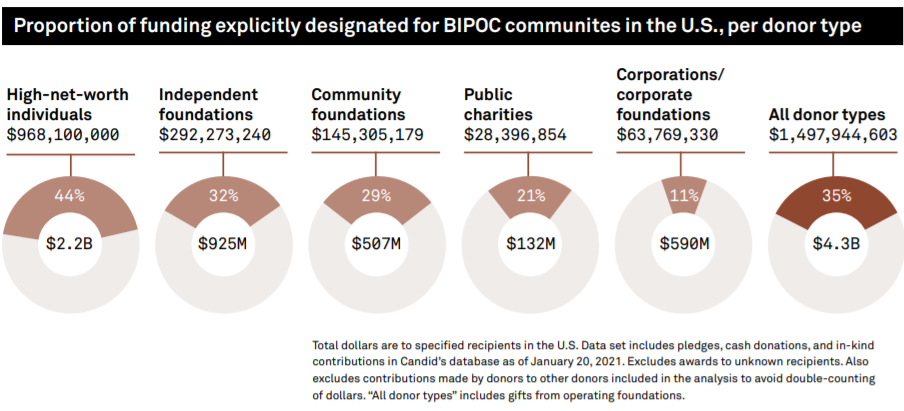The pandemic has ravaged many sectors, and the nonprofit sector hasn’t been spared.
A recent study by Candid, formerly the Foundation Center and GuideStar, found that up to one-third of US nonprofits are in danger of closure due to financial damage caused by the COVID-19 pandemic.
Most nonprofit organizations are positioned to survive a short recession, but not a major economic disaster. As we watch the pandemic-driven economic downturn unfold, it’s important to remember that such a downturn puts many nonprofit organizations at risk of closure.
The study analyzed how roughly 300,000 nonprofits would fare under 20 different economic scenarios ranging from a baseline with no crisis to a severe economic recession; the worst-case scenario projected the closing of 38 percent of nonprofits nationally. Even the less-gloomy scenarios resulted in closures in the double-digit percentages. Most disturbingly, the study illustrated the impact on Black, Indigenous, and People Of Color (BIPOC) led organizations, exacerbating the disparities of access to philanthropy that already underscore our society.
The study’s findings included the following:
- Candid tracked more than $20 billion awarded for COVID-19 globally in 2020, with corporations accounting for 44 percent of the funding;
- Arts and entertainment-oriented non-profits are the most at-risk, as they rely on ticket sales (which are all but non-existent during a pandemic), keep minimal cash on hand, and typically cannot reduce expenses;
- Nearly a quarter of overall donations that Candid tracked for all organizations over the period were designated for specific recipients in BIPOC communities;
- Twenty-three percent of donations were explicitly designated for BIPOC communities or went to organizations serving them;
- Once donations from high net-worth individuals were removed from the pool, however (leaving donations from corporations, foundations, and public charities), the percentage directed to communities of color dropped to 13 percent – making BIPOC-led organizations more vulnerable.

Source: Candid
What Does This Mean for the Nonprofit Sector?
This challenging landscape forces nonprofits to determine how they will survive as gifts get smaller and resources become tighter.
Many nonprofits are likely to try reducing costs by narrowing their focus, reducing services, or reducing their workforce. Some may seek to be part of a merger or an acquisition to bolster capacity or viability, although this will mean fewer nonprofits will survive. This is particularly saddening as before the pandemic, the nonprofit sector showed signs of resiliency.
While we are inspired by the consistent commitment of nonprofits and community organizations during the past year, we are also concerned about the future of the sector and the organizations fighting for a more equitable future for our communities.
Supporting the Sector
TSNE supports the nonprofit sector with our research, services, and resources — our Learning Lab partners with under-resourced organizations on their most pressing capacity-building needs, and we provide COVID-19 resources for nonprofits such as our guide to applying for the Paycheck Protection Program.
Throughout these multiple crises — the pandemic, the societal reckoning of racial and health inequities, and the financial crisis – we continue to strive to provide our clients with high quality service and to serve as a capacity builder for the people and groups supporting their communities through this time of immense hardship.
